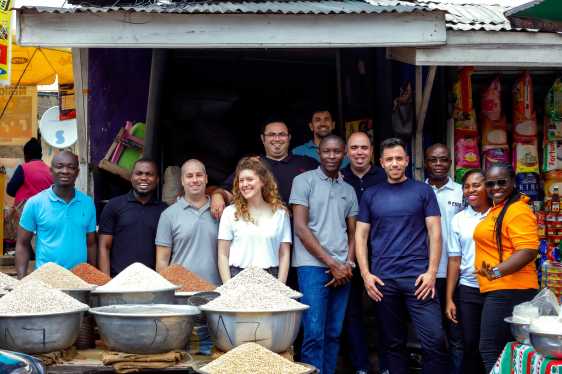In recent years, digital lending platforms have emerged as a swift and easy alternative source of credit for microenterprises and individuals who are often overlooked by traditional banking institutions. These platforms have become a lifeline for millions of underbanked individuals and small businesses, pushing the value of the digital lending platform market in the Middle East and Africa to reach $2 billion in the next five years.
A Four-Fold Growth Since 2021
The demand for digital lending platforms is expected to continue growing, driven by the increasing number of underbanked individuals and small businesses seeking access to credit. According to a recent report, the value of the digital lending platform market in the Middle East and Africa is expected to grow four-fold since 2021, reaching $2 billion in the next five years.
Fidoplans to Tap into Growing Demand
One fintech company that plans to tap into this growing demand is Ghanaian fintech Fido. Founded in 2015 by three Israeli entrepreneurs – Nadav Topolski, Tomer Edry, and Nir Zepkowitz – Fido initially offered loans over mobile phones. Over the years, the company has expanded its product offerings to include savings, bill payments, and smartphone financing, growing its revenue streams.
Fidoseeks Fresh Funding to Explore New Markets
To tap into this growing demand, Fido is seeking fresh funding of $30 million Series B debt-equity funding. The new capital includes a $20 million equity injection from global impact investment manager BlueOrchard and Dutch entrepreneurial development bank FMO. This funding will enable Fido to explore new markets in East and Southern Africa.
Fidopositions Itself as a Leader in the African Digital Lending Space
As one of the leading fintech companies in the African digital lending space, Fido is positioning itself as a leader in this market. The company has already served over a million customers, 40% of whom are small businesses, and extended over $500 million in loans across Ghana and Uganda.
Fidodifferentiates Itself from Traditional Lenders
Fido differentiates itself from traditional lenders by offering instant micro-loans to individuals and small businesses that are often unable to access credit from formal banking institutions. Unlike traditional lenders, Fido uses mobile technology and alternative data sources, such as mobile money transaction histories, to offer loans.
Fidodefault Rate: Below 4%
One of the key factors contributing to Fido’s success is its default rate, which stands at below 4%. This low default rate is attributed to the company’s use of advanced algorithms and machine learning techniques to assess creditworthiness.
Benefits of Digital Lending Platforms
Digital lending platforms such as Fido offer several benefits to customers, including:
- Convenience: Digital lending platforms offer instant access to credit, eliminating the need for lengthy application processes.
- Accessibility: These platforms provide access to credit for individuals and small businesses who are often excluded from traditional banking systems.
- Flexibility: Digital lending platforms offer flexible loan repayment options, allowing customers to repay loans in installments.
Conclusion
In conclusion, digital lending platforms such as Fido are providing a lifeline for millions of underbanked individuals and small businesses. With its four-fold growth since 2021, the value of the digital lending platform market in the Middle East and Africa is expected to reach $2 billion in the next five years. As one of the leading fintech companies in this space, Fido is positioning itself as a leader in the African digital lending market.
Related Hardware and Fintech News
- Roborock’s Roomba competitor gets a robot arm: Brian Heater
- Bad news for Adrian Dittman/Elon Musk truthers: Anthony Ha
- These fintech companies are hiring in 2025 after a turbulent year: Mary Ann Azevedo
- Thomson Reuters acquires tax automation company SafeSend for $600M: Paul Sawers
- Robinhood, already a ‘comeback’ stock, has even more aggressive plans for 2025: Connie Loizos




